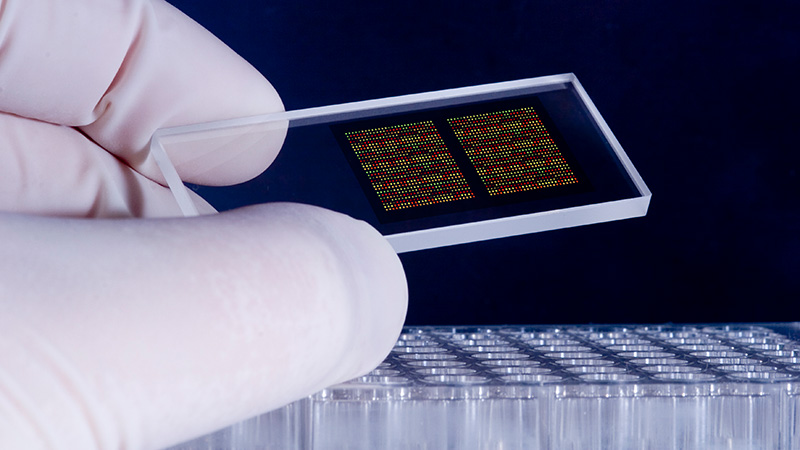Human-Relevant Alternatives to Animal Tests
Tissue-on-a-Chip
Tissue-on-a-chip models, or microphysiological systems, are a fusion of engineering and advanced biology. Silicon chips are lined with human cells that mimic the structure and function of human organs and organ systems. They are used for disease modeling, personalized medicine, and drug testing.
Tissue Chip for Drug Screening
The National Institutes of Health's Tissue Chip for Drug Screening program creates devices that mimic the function of human organs.
High-Throughput Screening
High-throughput screening can perform many different tests very quickly. The National Institutes of Health uses an ultra-high-speed robot capable of testing more chemicals in a single day than have been tested in the past 20 to 30 years using animals.
Tox21 Robot
The National Institutes of Health's high-speed Tox21 robot can screen thousand of chemicals at once.
In Silico
Computer-based techniques can simulate human biology and the progression of diseases or predict drug metabolism and distribution in the body.
3-D Bioprinting
Layers of cells, growth factors, and biomaterials are printed with 3-D construction that imitates natural tissue. Printed organs are used for chemical testing, medical research, and drug safety.
Imaging
Advanced tools for seeing inside the human body, even to the level of a single neuron, help study conditions like neurological disorders and observe drug effects.
Microdosing
These highly controlled human trials administer small, subtherapeutic doses to understand how a drug moves and metabolizes inside the body.
Support our work. Become a member.









